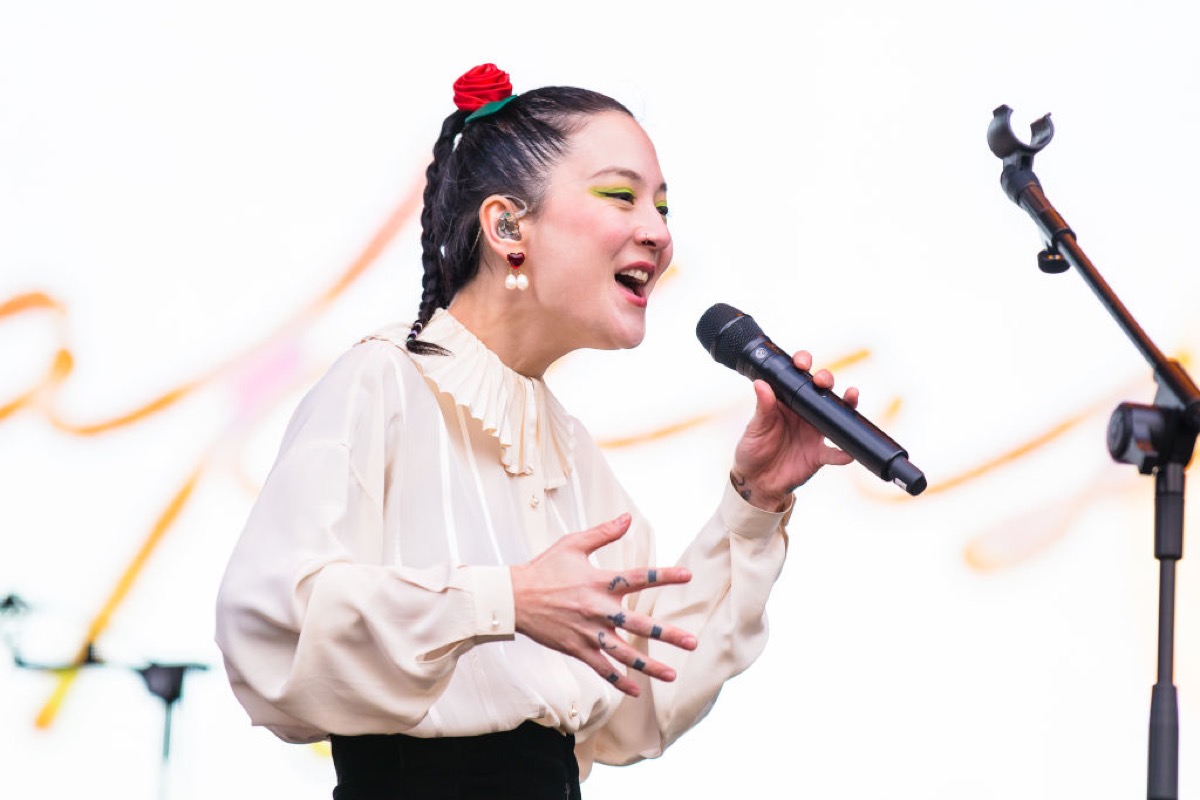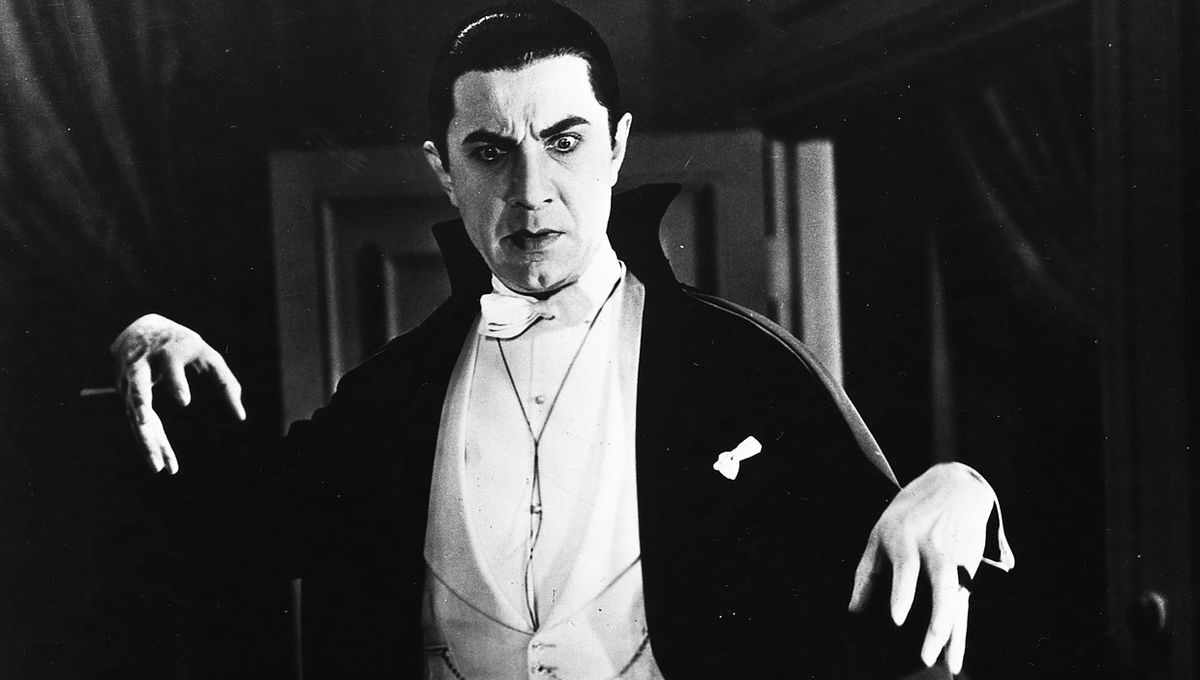Portland, Oregon’s Powell’s bookstore chain has earned its reputation for a reason: It’s got nearly everything you’d want to find in a bookstore, and it’s structured in a way that feels adventurous and purposeful in your book search. Unfortunately, that doesn’t mean it’s necessarily the best place to host events.
Last Friday, I went to see Michelle Zauner, founder and lead vocalist of Japanese Breakfast, speak at Powell’s (interviewed by the fantastic author Cecily Wong), figuring that the event wouldn’t be too difficult to access. Parking was hard, sure, but coming from L.A., where most events were tightly-wound and didn’t even properly start until ten or so minutes after, I thought I’d at least get a seat in the room she was in—a seat in the back, sure, but a seat, nonetheless.
Apparently, though, my Californian tight-assedness doesn’t mesh with Oregonian standards, because I found myself sitting by the stairwell leading up to the event with every other person who either showed up on time, or didn’t buy a book to be signed. The interview was played down to us via an intercom, whose gain was so low it barely picked up on Wong’s questions. Often we’d get long periods of silence while Michelle was asked a question. Thankfully, though, we could hear Michelle pretty well. For the most part. When people in our crowd weren’t talking over her.
This is apparently par for the course with Powell’s. When I relayed this information to a friend, he said that his dad, who grew up in the area, could attest to their limited capacity for hosting events. Oh, well. Now I know. Thankfully, my personal discomforts didn’t get in the way of collecting great information from this interview, which I am now happy to impart unto you.
Dispatches from the writer’s room
Much of the interview surrounded Michelle’s experience writing Crying in H-Mart, her 2021 memoir. Though she’s primarily known for her career as a musician, Michelle actually studied creative writing in college, so she spoke of her writing process with the angsty candor I’ve come to recognize in all “bona fide” writers. She got very used to spending months alone, completely engrossed in her work, which was a bit strange, yet ultimately necessary.
The necessity of all this solitude proved beneficial not just because it produced a book, but because it put her through a process of grieving and healing that she hadn’t really tapped into yet. She found herself going through emotional peaks and valleys, experiencing incredible sadness and rage—the likes of which made her words almost caustic to read. She’d go back to read her first drafts of particular stories and walk away stunned by the pure anger that came across (which is honestly very relatable).
By using writing as a processing mechanism, however, she was also able to tap into old memories she’d long since forgotten. This was especially huge, since she’d long since forgotten many smaller details about her mother, aside from her battle with cancer. By writing down the smaller details, larger ones began to open up for her, like shopping for rice cakes together in the supermarket.
Ultimately, she began to treat this story as proof of her grief, which I found very interesting as well as personally affirming. Zauner lost her mother at 25 and describes that period of her life as being intensely lonely, since many people cannot share in your grief that young because they don’t know how. One of my dearest friends passed when I was ten—I fully understand where she’s coming from. Writing a personal story truly does feel like a proclamation; it’s your way of making sure the world knows that this did happen to you, and even if it seems self-indulgent, ultimately we’re owed this catharsis if we can create something so beautiful out of it.
Of identity and intent
I know I’ve written extensively about what Zauner’s story means to me and other AAPI people, but after this reading, it became very clear to me that Zauner never intended to play what she called “the race card.” At Bryn Mawr, she recalls taking every creative writing course EXCEPT the nonfiction ones. She was afraid of seeming like a pity case, I suppose, and the idea of writing about herself brought her great discomfort. She expressed more of a personal interest in writing stories that were very removed from her own experiences, which she described as “macho” stories, more or less.
Makes sense to me! A lot of POC go through similar things, and ultimately, one’s own relationship to their identity is intensely complex and personal, unable to be defined by the metrics applied by others. As such, Zauner wanted to make it clear that she NEVER wanted Crying in H-Mart to be an “identity story.” If other Asian people took comfort in it, great, she wanted them to. But for her, it was just the story of her life. She was pleased to see how easily it flowed out of her once she started, but she dreaded the “burden” of carrying a larger concept of representation through her writing. She didn’t want to get it wrong and perhaps face backlash for it.
Such a relatable worry, the anxieties over “proper” representation, even when you literally come from the culture you’re writing about. From my perspective, Zauner’s story is at once entirely her own, and relatable to the point of making me laugh out loud during the reading. For instance, she told many stories about the pettiness and unbridled aggression that comes out of our Asian mothers’ mouths, which I found utterly delightful.
Indeed, it seems to me that Zauner is toeing that classic line mixed kids go through, even though she doesn’t want to carry that burden: the strong desire to just BE who are are naturally, without labels, while all the same carrying our upbringings with us. She and Wong started playing a game of “Fuck, Marry, Kill” with carbohydrates, and the conversation largely centered around how marryable rice is. Meanwhile, potatoes—which they considered a very white food—were immediately put in the kill zone. As a potato-loving Asian, I had to fight back laughter, surrounded by a crowd that smiled politely but didn’t quite seem to get it.
Perhaps the most heartwarming part of this conversation, in my opinion, was her discussion of Asian women in the arts. I didn’t quite catch her quote verbatim, as the intercom started to bug out (again), but what I did catch was an acknowledgement that it’s pretty lonely being a creative minority. I have a feeling this is why she doesn’t want to carry that “burden,” so she can just create untethered by the prejudices of others, but that’s just speculation based on my own experiences. It’s unfortunate that, all the same, we do end up being judged by these very prejudices, and as Asians we often blame ourselves for it anyways (something she brought up at the beginning of the talk).
What made it heartwarming was her discussing her first major tour, opening for Mitski alongside fellow AAPI musician Jay Som. She said that, at the time, Mitski was “THE hot Asian girl in Indie,” and she therefore could have just cashed in on her own success and amplified it with pre-established acts, yet instead, she chose to tour with other Asian women. I remember this tour, and though I wasn’t able to attend any of the shows, I followed the press around it like a dog chasing a bone. I was so remarkably floored by this beautiful lineup of women who looked and created like me, and to learn the backstory behind it made me want to cry in that damn Red Room.
Truly, we’re having our salad days now. Better later than never, I suppose!
What’s next?
Currently, Zauner is working on the screenplay for Will Sharpe’s film adaptation of Crying in H-Mart. Without getting too into it out of respect for her, it has definitely proven to be a more difficult experience than writing a novel! With a novel, you get to take your time, put your heart into it, and receive insightful feedback. With scriptwriting, she suddenly finds herself having to consider the input of multiple people who are trying to turn a deeply personal book into something adaptable for the average moviegoer. To put it simply, it’s just kind of a doozy.
However, she’s looking forward to seeing the finished product all the same, especially regarding all the good food shots that’ll be incorporated. She admitted a love for mukbang videos, which I found refreshing—I know it’s “popular” to hate on mukbangs, but as someone with GERD who can’t always eat delicious meals, I personally love watching mukbangs every once in a while, too!
Her next project is a planned move to Korea, where she hopes to write a book about her experiences learning Korean. Likely this will commence after her next tour ends. I could tell that, while she’s tired from all the touring she’s done already, she’s excited to get this next stage in her life underway. And as a fan, I’m excited, too. I can’t wait to see what brilliant thing she’s going to do next.
(featured image: Mauricio Santana/Getty Images)










Published: Apr 6, 2023 12:15 pm